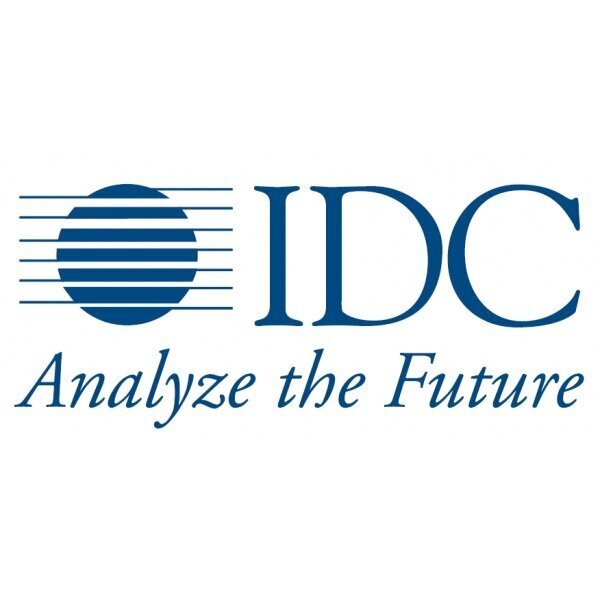Latest News & Executive Interviews
Gartner Survey Finds 72% of High Tech Leaders Expect to Grow Revenue in 2023, Despite Economic Uncertainty
Despite the current economic uncertainty, 72% of high-tech leaders in the U.S., Canada, and Western Europe have plans to grow revenue in 2023, according to a survey by Gartner, Inc. Furthermore, nearly half of those leaders believe they will be able to outperform their competition this year.
Most Automation Transformations Fall Short, Says Bain & Company
Companies across industries are underutilizing automation capabilities and underestimating the challenge of transitioning workers to jobs of the future, according to new research by Bain & Company. Survey findings show that workforce augmentation across industries has reduced costs by as much as 30%.
Frost & Sullivan: Digital Transformation Across Life Sciences Industry Boosts Instrumentation Market
Outdated short-term growth strategies that focus on extracting value from customers no longer work. Dramatic changes in buyers’ behavior, evolving business models, and technological advances mandate a shift in how companies design their strategies and operate their organizations. To drive profitable and sustainable business growth in this environment, alignment in B2C firms is critical to powering a customer-obsessed growth engine.
Gartner Survey Identifies Top Strategic Imperatives for HR Technology in 2023
With a tumultuous global economy, HR technology leaders face a balancing act in 2023 and must anticipate greater levels of accountability and demand for measurable outcomes to justify new technology investments - including skills management, learning experience platforms, and internal talent marketplaces.
IDC Spending Guide Forecasts Nearly $1 Billion in Future of Work Investments in 2023
Hybrid work, once thought to be a temporary means of enabling enterprises to continue business operations through the COVID-19 pandemic, has become a mainstay for the global work landscape. To enable these hybrid work models, organizations are investing in a wide range of technologies and services to increase workforce productivity and enable new, more agile ways of working.
Gartner Identifies Top Three Priorities of Effective Chief Data & Analytics Officers
The most effective data and analytics leaders focus on creating business value, nurturing data and analytics talent, and changing culture, according to Gartner, Inc. “The role of the chief data and analytics officer (CDAO) is growing in influence as it becomes required for organizations to transform data into business value,” said Carlie Idoine, VP Analyst at Gartner.
IDC FutureScape: Top 10 Predictions for the Future of Work
International Data Corporation (IDC) announced its Future of Work predictions for 2023 and beyond. With global attention divided between many disruptors, the future of work is fraught with many unknowns, from where and how work will be done to how economic pressures will change job opportunities to how social, skills, and climate concerns will have a broad impact.
IDC FutureScape: Top 10 Predictions for the Future of Intelligence
International Data Corporation (IDC) announced its Future of Intelligence predictions for 2023 and beyond. IDC's enterprise intelligence benchmarking research shows that maturity in enterprise intelligence makes a material difference to business outcomes.
According to BCG, 60% of Employees Using AI Regard It as a Coworker, Not a Job Threat
Despite the popular belief that organizations derive value from artificial intelligence (AI) at the expense of the individuals they employ, and that AI-powered automation can lead to the displacement of workers, 60% of employees view AI as a coworker and not a job threat. Furthermore, organizations with employees who derive value from AI are 5.9 times as likely to see significant financial benefits from it than organizations where employees do not get value from AI, according to a report from MIT Sloan Management Review (MIT SMR) and Boston Consulting Group (BCG) being released today.
Forrester’s Future Of Jobs Forecast: 63 Million Jobs In APAC Will Be Lost To Automation By 2040
Forrester forecasts that working populations in the five largest economies in Asia Pacific — India, China, South Korea, Australia, and Japan — are more at risk due to physical robot automation than Europe and North America. By 2040, 63 million jobs are expected to be lost to automation, with more than 247 million jobs expected to be in jeopardy across industries that are more susceptible to automation, such as construction and agriculture.
Global 2021 AI Venture Capital Investment Nears 2019 Historical High at $22.3 Billion
The global Venture Capital (VC) investment in Artificial Intelligence (AI) was close to its peak, reaching $22.3 billion in 2021. According to ABI Research, this is just $0.4 million shy of the historical high of $22.7 billion recorded in 2019.
Aberdeen: 3 Ways to Improve Your Talent Pipeline with Technology
Over half of all organizations today are increasingly struggling withurnover, time-to-hire, and cost-of-hire finds Aberdeen Stratery Researh. Data-driven Best-in-Class (BIC) organizations are differentiating themselves by investing in and leveraging cloud-based HR systems to competitively position and outperform others.
Gartner Sales Survey Finds 83% of B2B Buyers Prefer Ordering or Paying Through Digital Commerce
Eighty-three percent of B2B buyers say they prefer ordering or paying through digital commerce, according to Gartner, Inc. A Gartner survey of 725 B2B buyers from November through December 2021 found that digital commerce has rapidly become the norm and the preferred way to complete B2B purchases.
Less Than 20% of Retailers Are on Track to Meet Their Sustainability Targets, but There Are Reasons for Optimism, says BCG Study in Partnership with World Retail Congress
The retail industry must work harder and faster to make a meaningful impact to deliver on climate change commitments. Boston Consulting Group highlights the need for a seismic shift in attitudes and business processes to place sustainability at the core of corporate strategy, decision making, and value creation.
Gartner Says U.S. Total Annual Employee Turnover Will Likely Jump by Nearly 20% From the Prepandemic Annual Average
U.S. employee annual voluntary turnover is likely to jump nearly 20% this year, from a prepandemic annual average of 31.9 million employees quitting their jobs to 37.4 million quitting in 2022, according to Gartner, Inc. As employees seek to take advantage of new hybrid work arrangements, they are confronting issues of misalignment with leaders and achieving the flexibility they desire.
Digital Incumbents Fight Back; New Findings From Boston Consulting Group
A new cadre of companies are successfully executing digital transformations and outperforming their digitally native peers. These digital incumbents make up about 30% of the S&P Global 1200 Index and outperformed the index by about 50% over the last three years. Meanwhile, legacy incumbents struggled to drive growth and improve productivity using predominantly traditional levers.
Global Leaders Expect Challenges of Retaining, Attracting and Developing Top Talent Will Persist Over Next Decade, Protiviti & NC State University Survey Finds
Pandemic-related market conditions remain a top concern for 2022 among C-suite executives. Looking ahead to 2031, business leaders cite workforce and talent-related issues as their primary concern, indicating that the impact of the ‘Great Resignation’ will persist as their organizations struggle to fill the talent requirements supporting their strategies.
HR Leaders’ Number One Priority in 2022 will be Building Critical Skills and Competencies, Reveals Gartner Survey
Nearly 60% of HR leaders report that building critical skills and competencies will be their number one priority in 2022, according to a Gartner, Inc. survey. The survey found the other top HR priorities for 2022 are: organizational design and change management (48%), current and future leadership bench (45%), the future of work (42%), and diversity, equity, and inclusion (DEI) (35%).
PTC, Siemens, Telit;, and Hitachi Vantara are Leaders in ABI Research’s Smart Manufacturing Platforms Competitive Ranking
The new Smart Manufacturing Platforms Competitive Ranking by global technology intelligence firm ABI Research provides an in-depth and unbiased examination of the solutions offered by nine manufacturing platform providers delivering market insights on certain chosen technological criteria.
Gartner Says Nearly Half of Finance Leaders Plan to Assess Digital Currencies for Business in 2022
A September 2021 survey of 251 CFOs and other finance leaders revealed that 47% intend to assess digital currencies for business in 2022, according to Gartner, Inc. A February poll centered on bitcoin adoption showed 84% of finance leaders said they would never hold bitcoin as a corporate asset and pointed to a range of risks associated with holding the currency.


















